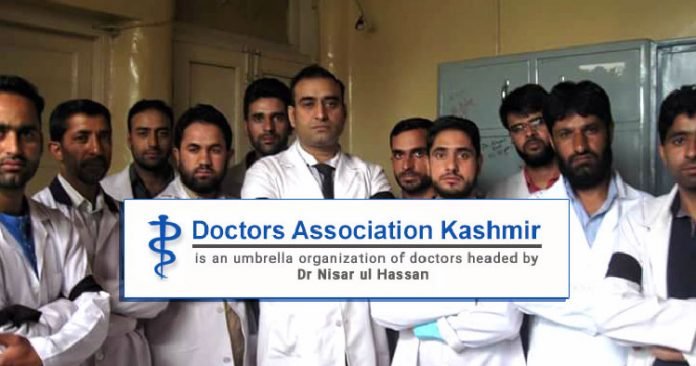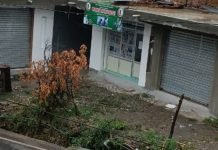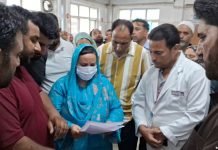
SRINAGAR — With 28 confirmed cases of novel Coronavirus in India and positive cases reported in New Delhi, Doctors Association Kashmir (DAK) on Wednesday asked health authorities in Kashmir Valley to prepare for contingencies.
“We need to intensify screening at entry points and enhance surveillance,” said DAK President, Dr Nisar-ul-Hassan in a statement issued here.
“The passengers at Srinagar International Airport should be screened by using thermal devices which spot people with fevers rapidly with no skin contact minimizing the risk of contagion,” he said, adding, “Thermal devices are used for mass screening of travellers to detect those who might be infected with Coronavirus.”
Dr Nisar said passengers should be asked about their travel history, symptoms and any history of contact with a suspected or a confirmed case. “For those without symptoms, health information cards should be given to them with an advice to seek medical attention in case they develop symptoms of illness,” he added.
He further said the passengers should also be screened at Lower Munda Qazigund as a majority of travellers enter the Valley by surface transport.
Dr Nisar said we need to step up surveillance, find cases early, isolate them and treat them and trace their contacts. “Hospital preparedness is key to public safety in case virus gets in. Health institutions should be ready to deal with potential Coronavirus patients,” he said.
“Although there is no positive case in the Valley, we should not be complacent as the threat is real. It would be a fatal mistake if we assume that the virus will not hit us,” he cautioned.
Dr Nisar said the novel Coronavirus that emerged in China in late December last year has spread to 60 countries. The deadly virus has killed at least 3,203 people and infected more than 93,000 worldwide so far.
“The virus spreads by respiratory droplets generated when an infected person coughs or sneezes,” he said.
“The clinical manifestation of the virus are fever, cough and cold and in severe cases, difficulty in breathing. With no cure or vaccine for the virus, people should continue to take precautions like hand washing and cough etiquette that would help prevent the spread of the virus,” said Dr Nisar.
Follow Us
The Kashmir Pulse is now on Google News. Subscribe our Telegram channel and Follow our WhatsApp channel for timely news updates!










